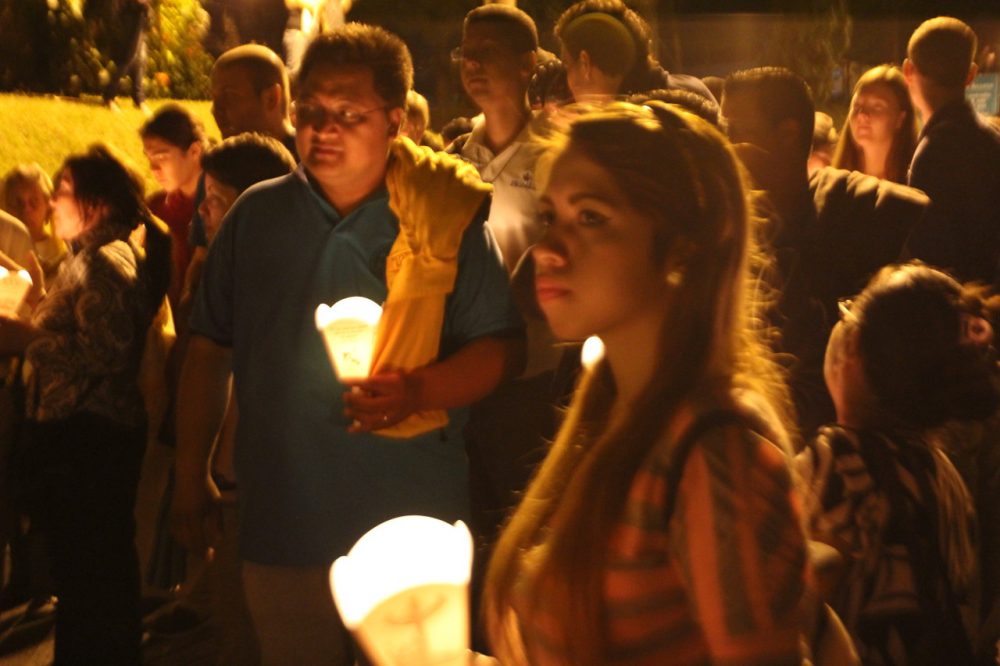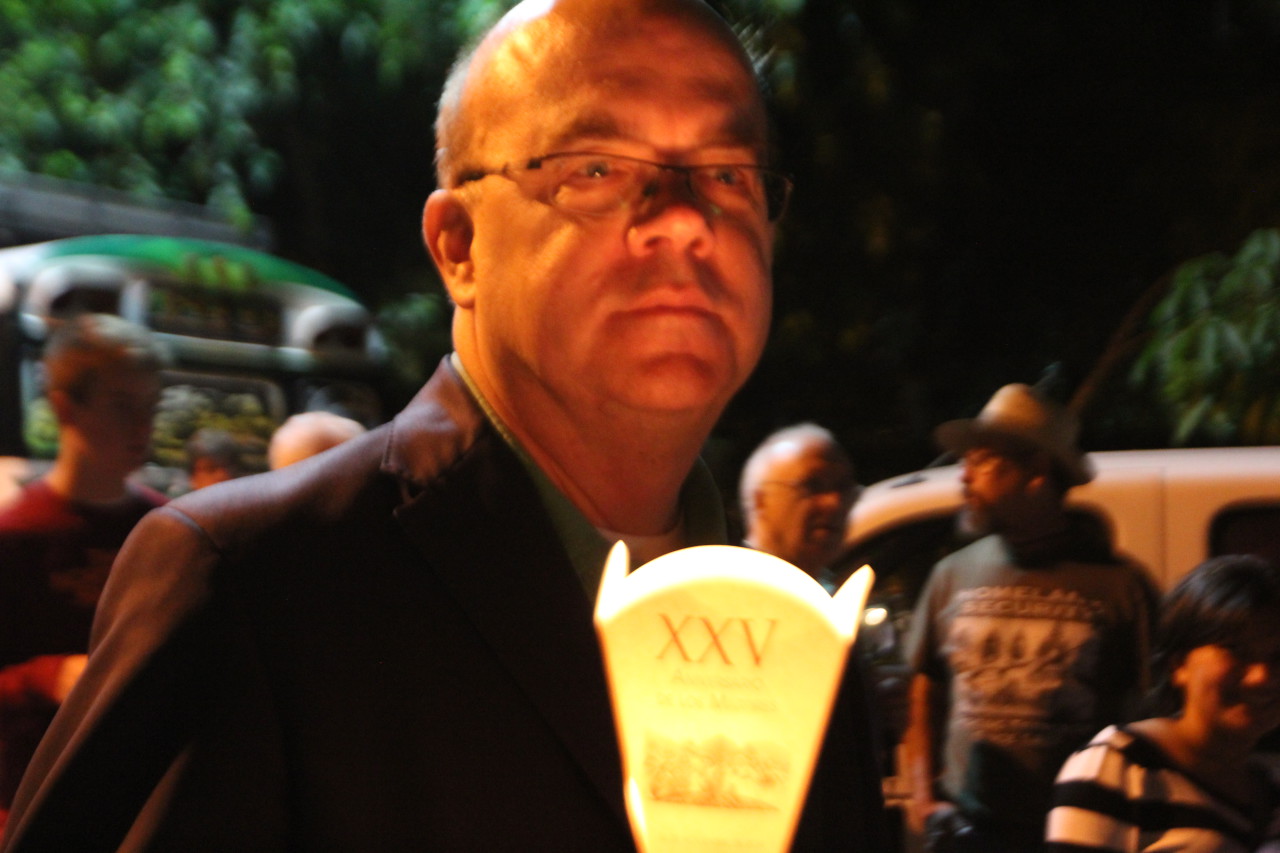Advertisement
Remembering The Jesuits Whose Murders Brought An End To Salvadoran Civil War
Resume
On a night unlike any other, thousands of Salvadorans and hundreds of priests from around the world gathered at the University of Central America in the capital city of San Salvador to honor the six dead who have become known as the "Martyrs for Justice."
In a candle-lit procession that traveled over colorful sand paintings and snaked around the campus under fireworks, children and old people, peasants and college students remembered the deaths that caused outrage and then an end to the brutal civil war.
"They were trying to walk a very careful line between social change and the needs of the poor — and not violent revolution," said Holy Cross President Philip Boroughs, recalling his fellow Jesuits. "But they, in the minds of others, were seen as fomenting a violent revolution, which was not their stance at all."
The army generals and right-wing death squads had long accused the Jesuits of being the brains behind the rebels. The war was 10 years old when soldiers came for them in the early morning of Nov. 16, 1989, and, in clear but grisly symbolism, shot them in the head.
Revulsion over their killings brought a congressional delegation, led by U.S. Rep. Joe Moakley of South Boston, to investigate.
On Moakley's first trip to El Salvador a few months later in 1990, Jesuits showed him the murder scene.
"This is the area where the priests were assassinated," a Jesuit told Moakley back then. "They were asked to lie down on the floor and were executed. They killed eight people."
In addition to the priests, their housekeeper and her 15-year-old daughter were also executed in compliance with an order from above that the soldiers get rid of any witnesses.
Moakley was filled with indignation. The evidence pointed to the top. As it later turned out, the orders to kill the priests came from the very top: the Army chief of staff. The killers belonged to an elite battalion trained and equipped by the United States, which had poured $4 billion into guns for the army and assistance for a government that killed priests and peasants with impunity.
Moakley became a bulldog.
"A central question for the task force is whether the human rights problems here in El Salvador, including the killing of the Jesuits, are the actions of a few renegade military figures or whether in fact they stem from attitudes and actions that go the very heart of the armed forces and other major institutions in this country," he said in February 1990.

Massachusetts would become known in El Salvador for the heroic work of the congressman who took the side of the poor and the oppressed, just as the Jesuits had and so too the martyred Archbishop Oscar Romero. Moakley's chief aide in running the investigation was in the procession this weekend, now a congressman in his own right, James McGovern.
"He was an American politician who stuck with it and who got to the truth and told the truth and did something about it," McGovern said. "He introduced an amendment to cut U.S. military aid to El Salvador, which passed, and that was a signal to the Salvadoran armed forces that the blank check that the U.S. government was giving them was over."
Outrage and the call to cut funding compelled the armed forces and the government into a truce with the rebels that brought an end to the war in 1992. And the martyrdom of those who taught a faith based on justice brought thousands of Salvadorans from every province this weekend to keep the nightlong vigil.
"I'm here because, first, I'm a Salvadoran," said Sandra Serrano, a student from a northern province. "They gave their lives, their faith and everything for us. So that's why I am here right now."
The civil war and the right-wing death squads may belong to the past, but the violence and impunity have never gone away. While repression and war sent the first flood of refugees northward, now the terror of gangs and cheap guns from America have sent a new wave of Salvadorans toward the U.S. And many of these refugees are children.
"Fifty-eight percent of children are fleeing from violent gangs," said Karla Castillo, who helped interview 600 children who left El Salvador to go north but were stopped and returned back home. Her interviews reveal the stark conditions in a country with the world's fourth highest rate of violence against children.
"They have a choice: they have to choose between die in the route or die here is El Salvador," she said. "They prefer to die on the route. They prefer to try to reach the United States because there is, maybe, a little possibility."
A little possibility. For life, for safety, for opportunity.
And here in El Salvador, on a night like no other, that quest for a little possibility explains the devotion of thousands to the martyrs who stood with them, the poor and the oppressed, and died because of it.
This segment aired on November 17, 2014.
